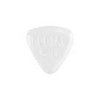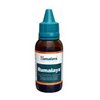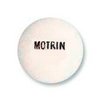INDICATIONS
Azulfidine is indicated:
- in the treatment of mild to moderate ulcerative colitis, and as adjunctive therapy in severe ulcerative colitis;
- for the prolongation of the remission period between acute attacks of ulcerative colitis;
- in the treatment of patients with rheumatoid arthritis who have responded inadequately to salicylates or other nonsteroidal anti-inflammatory drugs (e.g., an insufficient therapeutic response to, or intolerance of, an adequate trial of full doses of one or more nonsteroidal anti-inflammatory drugs);
- in the treatment of pediatric patients with polyarticular-course1 juvenile rheumatoid arthritis who have responded inadequately to salicylates or other nonsteroidal antiinflammatory drugs.
INSTRUCTIONS
Use Azulfidine as directed by your doctor. Check the label on the medicine for exact dosing instructions.
Take Azulfidine by mouth after meals.
Take Azulfidine with a full glass of water (8 oz/240 mL).
Drinking extra fluids while you are taking Azulfidine is recommended. Check with your doctor for instructions.
Space your doses evenly over the hours you are awake. If possible, try not to space your doses more than 8 hours apart.
Take Azulfidine on a regular schedule to get the most benefit from it.
Continue to take Azulfidine even if you feel well. Do not miss any doses.
If you miss a dose of Azulfidine, take it as soon as possible. If it is almost time for your next dose, skip the missed dose and go back to your regular dosing schedule. Do not take 2 doses at once.
DOSAGE
Use Azulfidine as directed by your doctor. Check the label on the medicine for exact dosing instructions.
Take Azulfidine by mouth after meals.
Take Azulfidine with a full glass of water (8 oz/240 mL).
Drinking extra fluids while you are taking Azulfidine is recommended. Check with your doctor for instructions.
Space your doses evenly over the hours you are awake. If possible, try not to space your doses more than 8 hours apart.
Take Azulfidine on a regular schedule to get the most benefit from it.
Continue to take Azulfidine even if you feel well. Do not miss any doses.
If you miss a dose of Azulfidine, take it as soon as possible. If it is almost time for your next dose, skip the missed dose and go back to your regular dosing schedule. Do not take 2 doses at once.
DOSAGE
The dosage of Azulfidine should be adjusted to each individual's response and tolerance.
Patients should be instructed to take Azulfidine in evenly divided doses, preferably after meals, and to swallow the tablets whole.
Initial Therapy
Adults: 3 to 4 g daily in evenly divided doses with dosage intervals not exceeding eight hours. It may be advisable to initiate therapy with a lower dosage, e.g., 1 to 2 g daily, to reduce possible gastrointestinal intolerance. If daily doses exceeding 4 g are required to achieve the desired therapeutic effect, the increased risk of toxicity should be kept in mind.
Children, six years of age and older: 40 to 60 mg/kg of body weight in each 24-hour period, divided into 3 to 6 doses.
STORAGE
Store Azulfidine at 77 degrees F (25 degrees C). Brief storage at temperatures between 59 and 86 degrees F (15 and 30 degrees C) is permitted. Keep Azulfidine out of the reach of children and away from pets.






